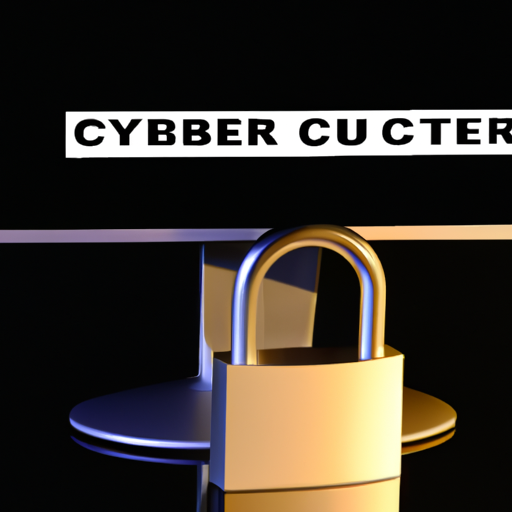How Do Ethical Hackers Help Organizations?
In the ever-evolving landscape of cybersecurity, organizations face constant threats from malicious hackers seeking to exploit vulnerabilities. However, there exists a unique breed of hackers who utilize their skills for the greater good – ethical hackers. These skilled professionals, also known as white hat hackers, play a crucial role in helping organizations safeguard their digital assets against cybercriminals. By proactively identifying and addressing vulnerabilities, ethical hackers assist organizations in fortifying their defenses, ensuring the protection of sensitive data and maintaining the trust of their customers.
Identifying Vulnerabilities
Penetration testing
Penetration testing, also known as ethical hacking, is an essential process that helps organizations identify vulnerabilities in their systems and networks. Ethical hackers simulate real-world cyber attacks to identify weak points in an organization’s security posture. By adopting the mindset of a malicious actor, ethical hackers can uncover vulnerabilities before they can be exploited by actual hackers. Through this process, organizations can identify potential risks and take appropriate measures to address them, ensuring the security of their systems and data.
Vulnerability assessments
Vulnerability assessments involve a systematic review of an organization’s systems, networks, and applications to identify potential security weaknesses. This process helps organizations understand the overall security state of their infrastructure and assists in prioritizing vulnerabilities based on severity. By conducting regular vulnerability assessments, organizations can stay proactive in identifying and addressing weaknesses that could be exploited by malicious actors. This helps prevent potential attacks and strengthens the organization’s overall security posture.
Providing Remediation Solutions
Patch management
Patch management is a critical process that involves regularly updating software, applications, and operating systems to address known vulnerabilities and security flaws. Ethical hackers play a significant role in identifying these vulnerabilities, which then allows organizations to proactively develop and implement patches. By staying up to date with the latest patches and security updates, organizations can mitigate the risk of exploitation and ensure that their systems are protected against emerging threats.
Implementing security measures
Ethical hackers also assist organizations in implementing effective security measures. This can include recommending and implementing firewalls, Intrusion detection systems, and other security solutions tailored to the organization’s specific needs. By proactively identifying potential security gaps and recommending appropriate security measures, ethical hackers help organizations strengthen their overall security posture and protect their sensitive data from unauthorized access or breaches.
Protecting Sensitive Data
Data encryption
Data encryption is a crucial component of protecting sensitive information. Ethical hackers help organizations implement robust encryption methods to safeguard their data. With proper encryption techniques in place, even if a hacker gains access to the data, it remains unreadable and unusable without the decryption key. Ethical hackers can assess an organization’s encryption methods and provide recommendations to enhance encryption protocols, ensuring that sensitive data remains secure and protected.
Secure coding practices
Ethical hackers also assist organizations in adopting secure coding practices to protect sensitive data from vulnerabilities that can be exploited by attackers. Through code review and analysis, ethical hackers can identify potential security flaws or weaknesses in an organization’s software development practices. By implementing secure coding practices, such as input validation, access controls, and secure authentication mechanisms, organizations can reduce the risk of unauthorized access to sensitive data and mitigate potential security breaches.
Preventing Data Breaches
Firewall configuration
Firewalls act as the first line of defense in protecting an organization’s network from unauthorized access. Ethical hackers can assess an organization’s firewall configuration to ensure that it effectively filters incoming and outgoing network traffic. They help identify any misconfigurations or weaknesses that could potentially allow unauthorized access and provide recommendations for improving firewall rules and policies. By ensuring that firewalls are properly configured, organizations can minimize the risk of data breaches and unauthorized network access.
Intrusion detection systems
Intrusion detection systems (IDS) play a crucial role in identifying and responding to potential security threats. Ethical hackers can help organizations implement and configure IDS to monitor network activity and detect any unauthorized or suspicious behavior. By analyzing network traffic and system logs, ethical hackers can identify any signs of compromise and provide recommendations for enhancing the organization’s intrusion detection capabilities. This proactive approach enables organizations to quickly detect and respond to potential data breaches, minimizing the impact and ensuring the security of their sensitive information.
Ensuring Regulatory Compliance
HIPAA compliance
Health Insurance Portability and Accountability Act (HIPAA) compliance is crucial for organizations handling sensitive healthcare data. Ethical hackers support organizations in ensuring they meet HIPAA requirements by conducting security assessments. They identify vulnerabilities and weaknesses that could potentially lead to non-compliance and recommend appropriate security controls and measures to address them. By partnering with ethical hackers, organizations can validate their security practices, implement necessary changes, and ensure they comply with the stringent requirements outlined by HIPAA.
PCI DSS compliance
Payment Card Industry Data Security Standard (PCI DSS) compliance is essential for organizations that process, store, or transmit credit card data. Ethical hackers assist organizations in achieving and maintaining PCI DSS compliance by conducting regular security assessments. They identify vulnerabilities that could compromise cardholder data security and provide recommendations for improving security controls and practices. By ensuring PCI DSS compliance through ethical hacking, organizations can enhance the security of their payment card data and protect their customers’ financial information from potential breaches and theft.
Training Employees
Security awareness programs
Ethical hackers help organizations by conducting security awareness programs to educate employees about potential cyber threats and best practices to protect sensitive data. These programs include interactive workshops, training sessions, and informative materials that increase employee awareness of security risks. By empowering employees with knowledge about phishing, social engineering, and other common attack vectors, organizations can significantly reduce the likelihood of successful attacks that exploit human vulnerabilities.
Phishing simulation exercises
Phishing simulation exercises are an effective way to train employees to recognize and respond to phishing emails and other social engineering tactics. Ethical hackers create realistic phishing scenarios and send harmless phishing emails to employees. The responses and actions of employees are then analyzed to identify areas for improvement. By regularly conducting these exercises, organizations can improve employee resilience against phishing attacks and enhance their overall security posture.
Enhancing Incident Response
Developing incident response plans
Ethical hackers assist organizations in developing comprehensive incident response plans to effectively handle and mitigate potential security incidents. They work together with key stakeholders to create a well-defined and organized approach that outlines roles, responsibilities, and critical steps to take in the event of a security breach. By having a well-prepared incident response plan in place, organizations can minimize the impact of a security incident, reduce downtime, and swiftly restore normal operations.
Performing post-incident analysis
After a security incident occurs, ethical hackers play a crucial role in performing post-incident analysis. They examine the incident, evaluate the organization’s response, and identify areas for improvement. By conducting a thorough analysis of the incident, ethical hackers help organizations better understand the attack vectors, identify any weaknesses in their security measures, and recommend enhancements to prevent similar incidents in the future. This continuous improvement process ensures that the organization is better prepared to handle any future security incidents.
Securing Web Applications
Web application security testing
Web application security testing is a vital process for identifying vulnerabilities and weaknesses in web applications. Ethical hackers conduct comprehensive tests to identify common vulnerabilities, such as cross-site scripting (XSS) attacks, SQL injection flaws, and insecure session management. By identifying and remediating these vulnerabilities, organizations can ensure that their web applications are secure and protected against potential attacks that could lead to the exposure of sensitive data.
Secure coding practices
Ethical hackers assist organizations in implementing secure coding practices when developing web applications. By analyzing the codebase and identifying potential vulnerabilities, ethical hackers can help organizations adopt coding practices that minimize the risk of security flaws. This includes implementing input validation, output encoding, secure authentication, and other secure coding techniques. Through secure coding practices, organizations can significantly reduce the risk of web application vulnerabilities and protect sensitive data from unauthorized access.
Strengthening Network Security
Network penetration testing
Network penetration testing is a valuable process that helps organizations evaluate the security of their networks. Ethical hackers simulate real-world attacks to uncover weaknesses and vulnerabilities that could be exploited by malicious actors. This comprehensive testing enables organizations to implement appropriate security measures and address any vulnerabilities before they can be exploited. By conducting regular network penetration testing, organizations can stay ahead of potential threats and ensure the security of their network infrastructure.
Network monitoring
Ethical hackers assist organizations in implementing robust network monitoring solutions to detect and respond to potential security incidents promptly. By monitoring network traffic, system logs, and other sources of data, organizations can identify any unauthorized or suspicious activity. Ethical hackers help set up and configure network monitoring tools and provide organizations with the necessary knowledge to interpret and respond to alerts effectively. This proactive approach allows organizations to identify and address potential network security threats before they escalate.
Assessing Physical Security
Physical security assessments
Physical security assessments involve evaluating an organization’s physical infrastructure, such as buildings, access control systems, and CCTV surveillance. Ethical hackers can assist organizations in conducting these assessments to identify potential vulnerabilities that could lead to unauthorized physical access or theft of sensitive assets. By evaluating physical security measures and recommending improvements, organizations can ensure that their physical infrastructure is adequately protected and minimize the risk of unauthorized access.
Access control systems
Access control systems play a critical role in securing physical spaces and sensitive areas within an organization. Ethical hackers can assess an organization’s access control systems to identify potential weaknesses or misconfigurations that could compromise security. By recommending appropriate access control measures, such as multi-factor authentication, biometric systems, or strong password policies, organizations can strengthen their physical security and prevent unauthorized individuals from gaining access to restricted areas.
In conclusion, ethical hackers play a vital role in helping organizations identify vulnerabilities, provide remediation solutions, protect sensitive data, prevent data breaches, ensure regulatory compliance, train employees, enhance incident response, secure web applications, strengthen network security, and assess physical security. By leveraging ethical hacking techniques, organizations can stay proactive in addressing potential security risks, protecting their valuable assets, and maintaining a strong security posture.








